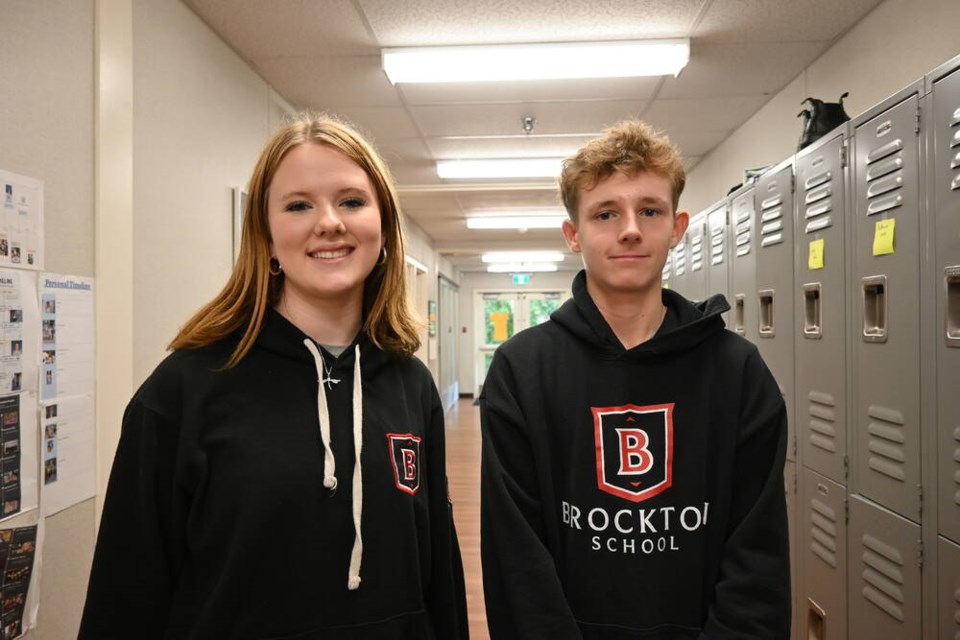As adults across British Columbia line up to cast their ballots this week for the provincial election and practice their right to vote, youth are too.
Dozens of Grade 5 to 12 students at Brockton School in North Vancouver voted in a mock election for the official candidates of the North Vancouver-Seymour riding early Wednesday morning.
15-year-old Paloma Wylie and Lucas Johnson were two chief electoral officers who helped run the election smoothly. As the process unfolded, they highlighted the importance of having these elections before the real deal.
“I think it was a really interesting process, it widened my whole view on [politics] and how the whole system works of having different candidates and MLAs,” Wylie said.
“I’ve learned a lot more about what it really means, and when I’m voting, what will it do?” Johnson said. “Before this, I’m thinking I could just vote and then it wouldn’t really affect me.”
Brockton School is just one of the 1,200 schools participating in B.C.’s Student Vote program, where students under the voting age get the chance to practice casting ballots and understand how an election works.
Gearing up to the Oct. 19 provincial election, as many as 175,000 elementary and secondary students are expected to cast a ballot across the province.
Before election day at Brockton, six weeks were dedicated to preparing for the election. Grade 10 students created what social humanities teacher Shannon Leggett describes as an electoral scrapbook – a step-by-step project about learning the electoral process.
This included researching MLAs in the riding as well as the party leaders and their platforms.
Leggett has played a big part in keeping the program running at Brockton for years, and says instilling the habit of voting is vital.
“If they’ve already been paying attention to the political process and seeing that it’s important to get involved locally … once they become adults, they really are engaged and can play a role in shaping the future of their communities,” Leggett said.
The Student Vote program is part of CIVIX, a Canadian charity dedicated to strengthening democracy through civic education. Their programming focuses on elections, government budgets, elected representatives and digital media literacy, the organization said.
“It gives [youth] a voice that they would not necessarily have until they are 18,” Wylie said. “The youth are the voice of the future, because they are the ones that will be running it soon.”
The Student Vote election results are expected to be released early next week, Leggett said.
Abby Luciano is the Indigenous and civic affairs reporter for the North Shore News. This reporting beat is made possible by the Local Journalism Initiative.




